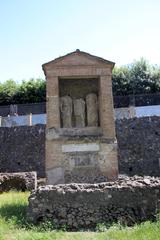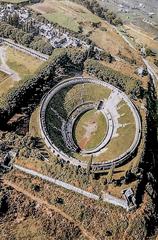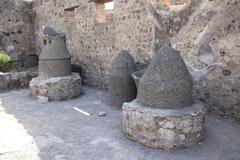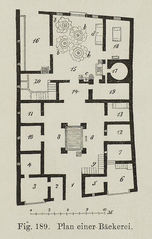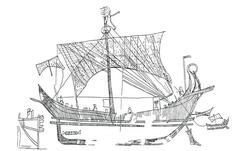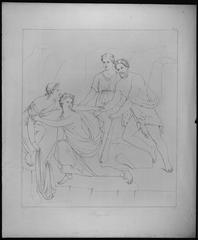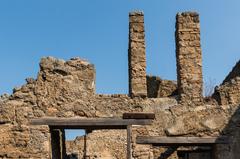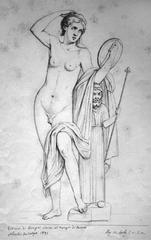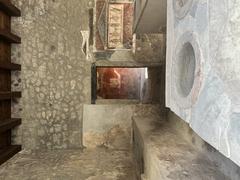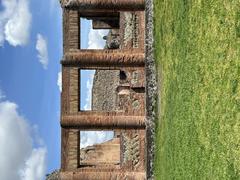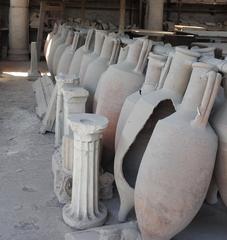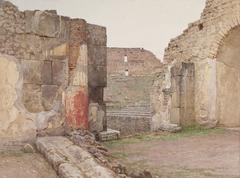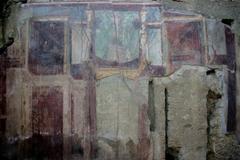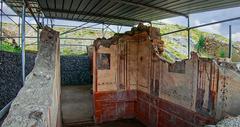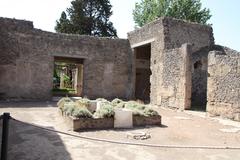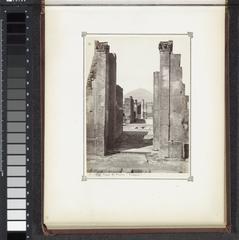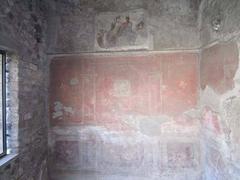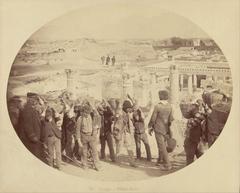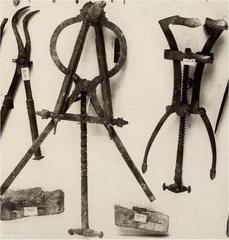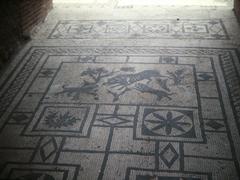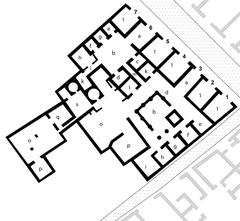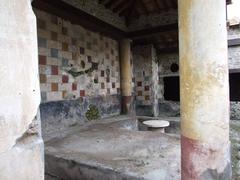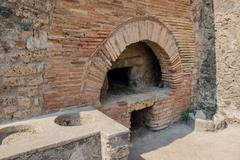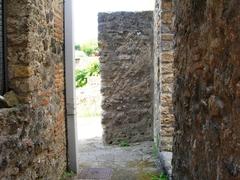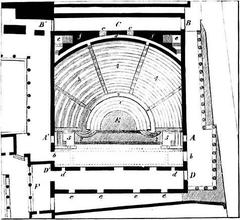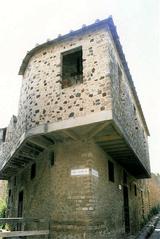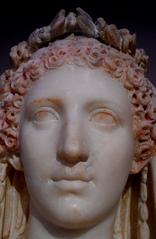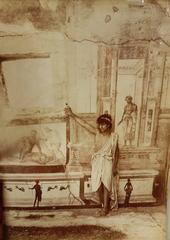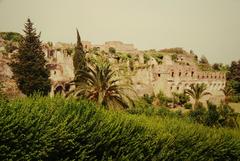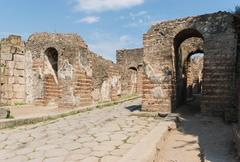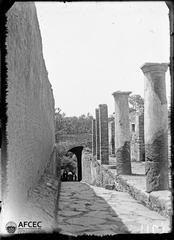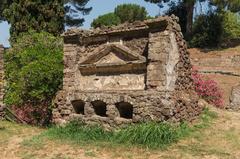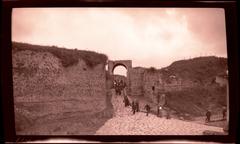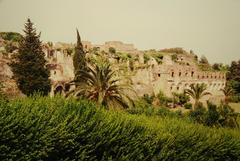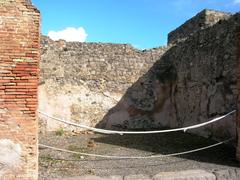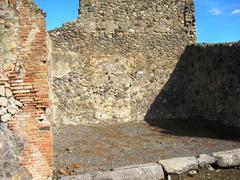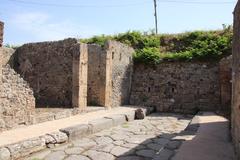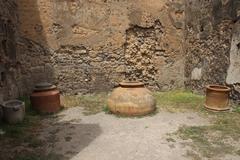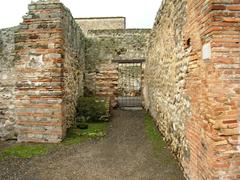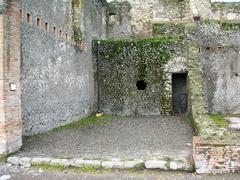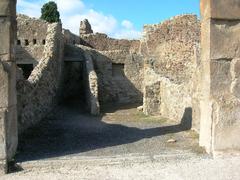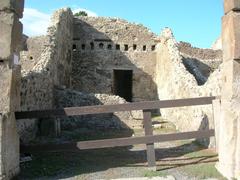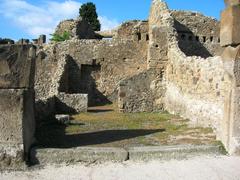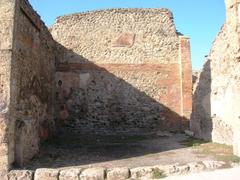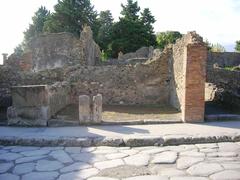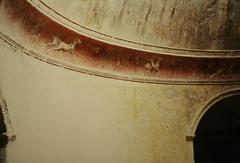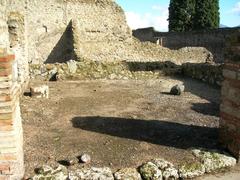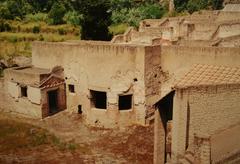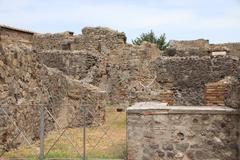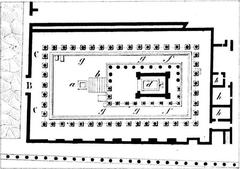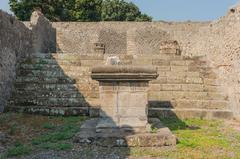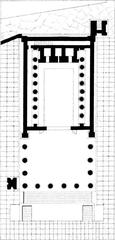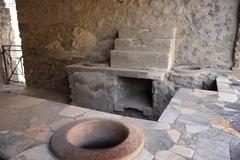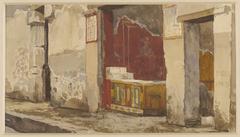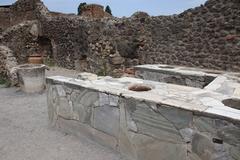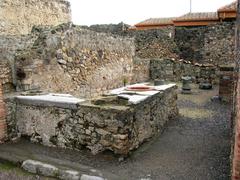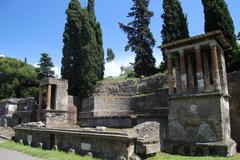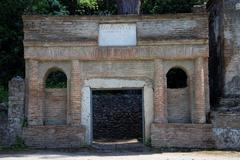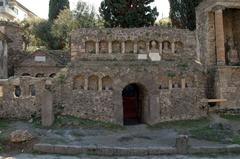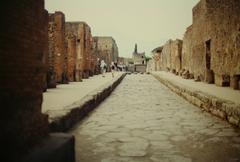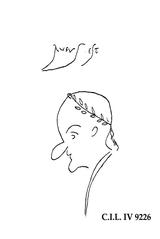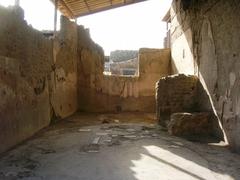Pompeii Workshops: Comprehensive Guide to Visiting Hours, Tickets, and Historical Sites
Date: 14/06/2025
Introduction
Pompeii, the ancient Roman city immortalized by the eruption of Mount Vesuvius in AD 79, offers an unparalleled window into daily urban life nearly two millennia ago. Among its preserved wonders, the workshops—known as officinae—reveal the dynamic economy, skilled craftsmanship, and vibrant social fabric of the city. These artisanal spaces, ranging from bakeries and laundries to potteries and metalworking shops, provide invaluable insights into ancient production techniques and urban organization. This guide equips travelers with historical context, practical advice, and insider tips for exploring Pompeii’s workshops, ensuring a meaningful and enriching visit.
Table of Contents
- Introduction
- Historical Development of Pompeii’s Workshops
- Archaeological Discoveries and Recent Excavations
- Social and Economic Significance
- Visiting Pompeii’s Workshops: Practical Information
- Modern Visitor Experiences and Workshop Demonstrations
- Visual and Media Resources
- Frequently Asked Questions (FAQ)
- Ongoing Research and Future Prospects
- Conclusion and Call to Action
- Sources
Historical Development of Pompeii’s Workshops
Urban Integration and Evolution
Workshops, or officinae, were integral to Pompeii’s urban landscape. From the Samnite period through to the eruption, workshops proliferated and specialized, often blending seamlessly into residential blocks. This integration reflected the close connection between domestic and commercial life, with houses routinely converted to accommodate enterprises such as bakeries, laundries, and craft studios (PompeiiSites.org; Italian Art Ventures).
Types and Functions of Workshops
Fullonicae (Laundries)
Laundries specialized in cleaning, dyeing, and finishing textiles—a critical economic sector in a society where clothing signified status. Sites like the Fullonica of Stephanus feature basins, vats, and pressing areas, showcasing ancient textile care (Italian Art Ventures).
Bakeries (Pistrina)
Bakeries, such as those in Regio IX, were equipped with mills, ovens, and dough-preparation areas, producing bread for the city’s inhabitants. Notably, the bakery of N. Popidius Priscus contained carbonized loaves at the time of the eruption (PompeiiSites.org).
Metalworking and Bronze Workshops
These shops produced tools, jewelry, and household goods, with evidence of furnaces and tools found near city gates (Nomade Picureans).
Pottery, Textile, and Associated Workshops
Pottery workshops yielded kilns and unfinished wares, while textile studios revealed looms and dye vats (Monuments & Sights).
Food and Drink Production
Workshops also produced garum (fish sauce), wine, and prepared foods, supporting Pompeii’s bustling market life (The Tourist Checklist).
Mosaic, Painting, and Glass Workshops
Artisan studios created mosaics, frescoes, and glass vessels, with remains of pigments, molds, and kilns discovered on-site.
Archaeological Discoveries and Recent Excavations
Regio IX and Technological Advances
Recent excavations in Regio IX, particularly Insula 10, have uncovered more than 50 rooms, including atrium houses repurposed as workshops. These findings highlight the technological sophistication and specialization of Pompeian industry, with features such as millstones, ovens, and dye vats (PompeiiSites.org; Italian Art Ventures).
Conservation Methods
Modern conservation techniques, including stratigraphic analysis, archaeobotanical studies, and digital documentation, have advanced our understanding of ancient production processes. These efforts focus on stabilizing structures and preserving delicate frescoes and surfaces (Italian Art Ventures).
Social and Economic Significance
Pompeii’s workshops were central to both the city’s economy and social life. Many were family-run, with skills handed down through generations. Shrines within workshops indicate the intertwining of work and religion. The distribution of workshops across the city also reflects the social hierarchy, with more prestigious trades located centrally and others on the periphery (Nomade Picureans).
Visiting Pompeii’s Workshops: Practical Information
Visiting Hours and Ticketing
- Opening Hours: Generally open daily from 9:00 AM to 7:00 PM/7:30 PM (last entry 5:30–6:00 PM). Closed on December 25, May 1, and January 1. Always check the official website for seasonal updates.
- Tickets: Purchase online or at entrances. Standard adult tickets start around €16, with reduced rates for EU citizens aged 18-25 and free entry for children under 18. Combined tickets for nearby sites are available. Advance booking is recommended, especially in peak season (The Tour Guy).
Access, Guided Tours, and Visitor Tips
- Entrances: Main gates include Porta Marina, Piazza Anfiteatro, and Piazza Esedra.
- Guided Tours: Expert-led tours offer deep insights into workshops and ongoing research. Bookable online or on-site, often available in multiple languages (Nomade Picureans).
- Visitor Tips:
- Wear comfortable shoes; surfaces are uneven.
- Bring water, sun protection, and snacks.
- Use a map to plan your route and focus on specific workshop types.
- Respect barriers and preservation signage.
- For accessibility, some routes are adapted for wheelchairs, though terrain can be challenging.
Modern Visitor Experiences and Workshop Demonstrations
Visitors can participate in hands-on activities such as pottery, mosaic-making, and fresco painting, often conducted by local artisans near the archaeological park. These workshops, suitable for all ages, allow you to experience ancient techniques firsthand and take home unique souvenirs (The Tourist Checklist). Advance reservations are recommended.
Visual and Media Resources
- Images & Alt Text: Seek high-quality images of bakery ovens, fullonica vats, tools, and mosaics. Use descriptive alt text with keywords like “Pompeii workshops” and “Pompeii visiting hours.”
- Virtual Tours: Explore interactive maps and digital reconstructions via official and partner platforms (Pompeii Archaeological Park).
Frequently Asked Questions (FAQ)
-
Q: What are Pompeii’s opening hours?
A: Generally 9:00 AM to 7:00/7:30 PM, last entry 5:30–6:00 PM. Closed on select holidays. Check here for updates. -
Q: How can I buy Pompeii tickets?
A: Purchase online or at entrances. Advance booking is recommended. -
Q: Are workshops accessible for those with disabilities?
A: Some areas are accessible, but uneven terrain may require assistance. -
Q: Are guided tours and workshop demonstrations available?
A: Yes, in multiple languages. Hands-on workshops require advance booking. -
Q: What are the main entrances?
A: Porta Marina, Piazza Anfiteatro, Piazza Esedra.
Ongoing Research and Future Prospects
Active excavations—especially in Regio IX—continue to yield new insights into Pompeii’s industrial heritage. Advances in conservation and digital documentation promise even greater access and understanding for future visitors (PompeiiSites.org).
Conclusion and Call to Action
Pompeii’s workshops, from bustling bakeries to innovative laundries and vibrant craft studios, illuminate the ingenuity and daily realities of ancient Roman life. By planning your visit around official hours, securing tickets in advance, and engaging in guided or hands-on experiences, you can connect deeply with the legacy of this extraordinary site.
Stay informed: Download the Audiala app, follow us on social media, and explore related articles for up-to-date visitor information and immersive content.
